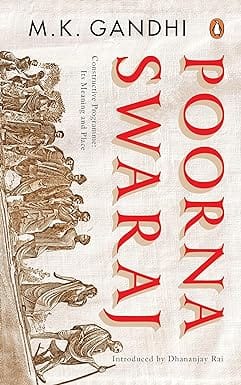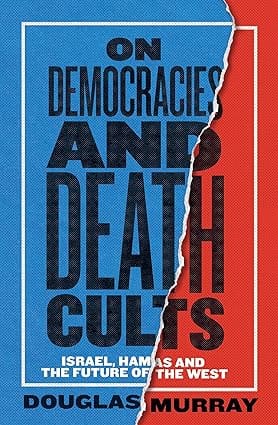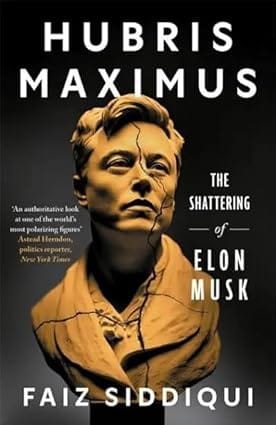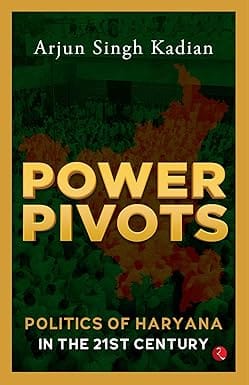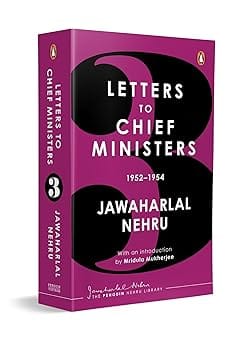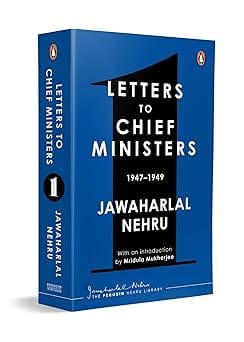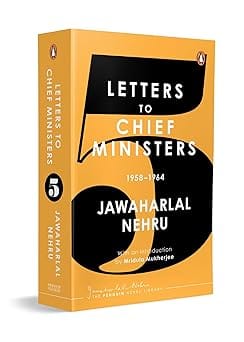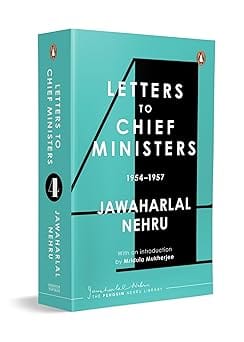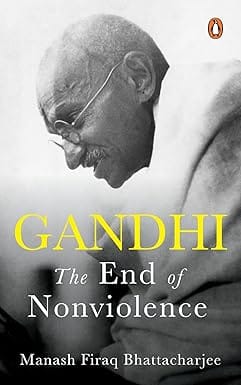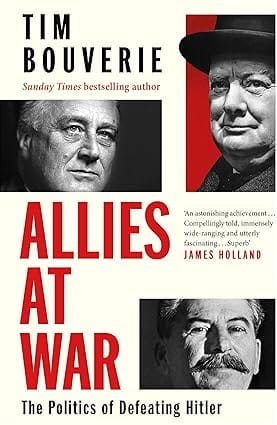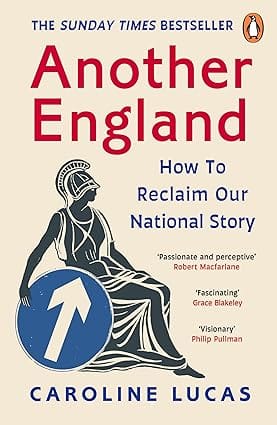WELCOME TO MIDLAND BOOK SHOP!
SHOP FOR
- Contemporary Fiction
- Contemporary Fiction
- Children
- Children
- Comics & Graphic Novels
- Comics & Graphic Novels
- Non-Fiction
- Non-Fiction
- Fiction
- Fiction
Shop No.20, Aurobindo Palace Market, Hauz Khas, Near Church +91 9818282497 | 011 26867121 110016 New Delhi IN
Midland The Book Shop ™
Shop No.20, Aurobindo Palace Market, Hauz Khas, Near Church +91 9818282497 | 011 26867121 New Delhi, IN
+919871604786 https://www.midlandbookshop.com/s/607fe93d7eafcac1f2c73ea4/677cda367903fd013d69b606/without-tag-line-480x480.png" [email protected]9780670098279 653f9929d73d93f7eb2914b2 Poorna Swaraj Constructive Programme Its Meaning And Place https://www.midlandbookshop.com/s/607fe93d7eafcac1f2c73ea4/653f992bd73d93f7eb2914c6/91hq5y9g30l-_sy385_.jpg 9780670098279
Review
Dhananjay Rai's engagement with Gandhi's ideas seems to be as thorough as his immersion in political theory. This study doesn't merely present the forgotten half of the Satyagraha coin, namely The Constructive Programme; it contributes to current analyses of the health of liberal democracies. -- Rajmohan Gandhi, University of Illinois at Urbana-Champaign
In this thoughtful book Dr. Rai analyses Gandhi from a rather unusual perspective and relates him to some of the important issues raised but not resolved by liberal theory. It makes an impressive contribution to Gandhian studies and deserves a warm welcome. -- Bhikhu Parekh, Fellow of the Royal Society of Arts and of the Academy of the Learned Societies for Social Sciences and Emeritus Professor of political philosophy, the University of Westminster, UK
The book constructs not only a long trajectory (1917-48) of Gandhi's Constructive programmes involving continuous churning and evolution of ideas. Liberal political theorists have differently conceptualised these programmes. Dhananjay Rai very ably sums up these interpretations and provide his critique. The significant contribution of this book to Gandhian studies and liberal political theory is Rai's refreshing interpretation of the constructive Programmes as 'extra parliamentary' bringing people's everyday politics to the centre of democracy for social transformation. The book would interest anyone who is interested in Gandhian thought for social transformation to construct a non-violent society. -- Ghanshyam Shah, former professor, Jawaharlal Nehru University, and former director, Centre for Social Studies, Surat
Dhananjay Rai has picked up an area that is vital for reconstructing Gandhi's non-violent society. Rai has presented and commented on Gandhi's Constructive Program relevant for humanity today in general and Indian society in particular. He calls it 'Philosophy Practical' without which Gandhi's life and work cannot be understood. It is a short but novel and scholarly contribution that gives fresh insights. And a scholar suggested a moratorium on writing on Gandhi in 1969! -- Sudarshan Iyengar, former vice chancellor, Gujarat Vidyapith, Ahmedabad and former director, Centre for Social Studies, and Gujarat Institute of Development Research, Ahmedabad
This work merits attention, as it offers to make sense of Gandhi ... through the idea of constructive programme. -- Gopal Guru, editor, Economic and Political Weekly; former professor of political theory, Jawaharlal Nehru University
The well-tested constructive program in Gandhi is wonderfully connected by Dhananjay Rai to the ideals of Swaraj, thereby bridging the gap between theory and practice. He also examines Gandhi's political theory both within and outside the liberal political theory, highlighting its distinctness. -- A. Raghuramaraju, professor of philosophy, Indian Institute of Technology Tirupati
Gandhi these days is seen at best as the leader of India's anti-colonial political struggle. This however misses the point that the struggle for the liberation of the Indian people, of which the anti-colonial struggle was one crucial element, was an all-encompassing one, involving economic, political and social terrains; and Gandhi saw himself as being engaged in this all-encompassing struggle that he felt had to be ethically-informed and to eschew the pursuit of capitalist development (for which he used the term the "English system"). Dr. Dhananjay Rai has done a great service in drawing attention to the integrity of Gandhi's thought and, through that, to the condition for the liberation of the Indian people; this is an extremely valuable and timely work. -- Prabhat Patnaik, Emeritus Professor of Economics at Jawaharlal Nehru University and former vice-chairman of Kerala State Planning Board
This book is a significant and worthy contribution to the discourse on Gandhi's theory and practice, particularly the latter. While considerable critical academic attention has been given to the ideas and principles of Gandhi - what Dhananjay Rai refers to as 'philosophy proper', this work, by critically and contextually reading Gandhi's 'philosophy practical' - his constructive program, offers a comprehensive and complete understanding of the idea of poorna swaraj. This book would be of interest to scholars working on Gandhi as well as to people interested in the creative possibility of a substantive, open and people oriented ideal of political democracy. -- Lajwanti Chatani, professor of Political theory, The Maharaja Sayajirao University of Baroda Vadodara, Gujarat
In this thoughtful book Dr. Rai analyses Gandhi from a rather unusual perspective and relates him to some of the important issues raised but not resolved by liberal theory. It makes an impressive contribution to Gandhian studies and deserves a warm welcome. -- Bhikhu Parekh, Fellow of the Royal Society of Arts and of the Academy of the Learned Societies for Social Sciences and Emeritus Professor of political philosophy, the University of Westminster, UK
The book constructs not only a long trajectory (1917-48) of Gandhi's Constructive programmes involving continuous churning and evolution of ideas. Liberal political theorists have differently conceptualised these programmes. Dhananjay Rai very ably sums up these interpretations and provide his critique. The significant contribution of this book to Gandhian studies and liberal political theory is Rai's refreshing interpretation of the constructive Programmes as 'extra parliamentary' bringing people's everyday politics to the centre of democracy for social transformation. The book would interest anyone who is interested in Gandhian thought for social transformation to construct a non-violent society. -- Ghanshyam Shah, former professor, Jawaharlal Nehru University, and former director, Centre for Social Studies, Surat
Dhananjay Rai has picked up an area that is vital for reconstructing Gandhi's non-violent society. Rai has presented and commented on Gandhi's Constructive Program relevant for humanity today in general and Indian society in particular. He calls it 'Philosophy Practical' without which Gandhi's life and work cannot be understood. It is a short but novel and scholarly contribution that gives fresh insights. And a scholar suggested a moratorium on writing on Gandhi in 1969! -- Sudarshan Iyengar, former vice chancellor, Gujarat Vidyapith, Ahmedabad and former director, Centre for Social Studies, and Gujarat Institute of Development Research, Ahmedabad
This work merits attention, as it offers to make sense of Gandhi ... through the idea of constructive programme. -- Gopal Guru, editor, Economic and Political Weekly; former professor of political theory, Jawaharlal Nehru University
The well-tested constructive program in Gandhi is wonderfully connected by Dhananjay Rai to the ideals of Swaraj, thereby bridging the gap between theory and practice. He also examines Gandhi's political theory both within and outside the liberal political theory, highlighting its distinctness. -- A. Raghuramaraju, professor of philosophy, Indian Institute of Technology Tirupati
Gandhi these days is seen at best as the leader of India's anti-colonial political struggle. This however misses the point that the struggle for the liberation of the Indian people, of which the anti-colonial struggle was one crucial element, was an all-encompassing one, involving economic, political and social terrains; and Gandhi saw himself as being engaged in this all-encompassing struggle that he felt had to be ethically-informed and to eschew the pursuit of capitalist development (for which he used the term the "English system"). Dr. Dhananjay Rai has done a great service in drawing attention to the integrity of Gandhi's thought and, through that, to the condition for the liberation of the Indian people; this is an extremely valuable and timely work. -- Prabhat Patnaik, Emeritus Professor of Economics at Jawaharlal Nehru University and former vice-chairman of Kerala State Planning Board
This book is a significant and worthy contribution to the discourse on Gandhi's theory and practice, particularly the latter. While considerable critical academic attention has been given to the ideas and principles of Gandhi - what Dhananjay Rai refers to as 'philosophy proper', this work, by critically and contextually reading Gandhi's 'philosophy practical' - his constructive program, offers a comprehensive and complete understanding of the idea of poorna swaraj. This book would be of interest to scholars working on Gandhi as well as to people interested in the creative possibility of a substantive, open and people oriented ideal of political democracy. -- Lajwanti Chatani, professor of Political theory, The Maharaja Sayajirao University of Baroda Vadodara, Gujarat
About the Author
M. K. Gandhi was born in 1869 in Porbandar, India. He studied law in London and was admitted to the Inner Temple in 1891. He worked to improve the rights of immigrant Indians in South Africa and returned to India in 1915 to take up the struggle for independence from Britain. Gandhi never wavered in his belief of non-violent protests and in 1947, he succeeded in uniting India with a national movement. In January 1948, Gandhi was assassinated as he walked to take his evening prayers.
Dhananjay Rai is a visiting fellow (2022-24) at the Centre for the Study of Developing Societies, Delhi, and faculty (2011 onwards) at the Centre for Gandhian Thought and Peace Studies, Central University of Gujarat, Gandhinagar.
Dhananjay Rai is a visiting fellow (2022-24) at the Centre for the Study of Developing Societies, Delhi, and faculty (2011 onwards) at the Centre for Gandhian Thought and Peace Studies, Central University of Gujarat, Gandhinagar.
in stockINR 479
1 1
Email ID already exists!
Your Current password is incorrect
Password Updated Successfully
Thanks for your Feedback
Poorna Swaraj Constructive Programme Its Meaning And Place
ISBN: 9780670098279
₹479
₹599 (20% OFF)SIZE GUIDE
Sold By: Hauz Khas - Aurobindo Market
Details
- ISBN: 9780670098279
- Author: M K Gandhi
- Publisher: Penguin Vintage
- Pages: 280
- Format: Hardback
Book Description
Review
Dhananjay Rai's engagement with Gandhi's ideas seems to be as thorough as his immersion in political theory. This study doesn't merely present the forgotten half of the Satyagraha coin, namely The Constructive Programme; it contributes to current analyses of the health of liberal democracies. -- Rajmohan Gandhi, University of Illinois at Urbana-Champaign
In this thoughtful book Dr. Rai analyses Gandhi from a rather unusual perspective and relates him to some of the important issues raised but not resolved by liberal theory. It makes an impressive contribution to Gandhian studies and deserves a warm welcome. -- Bhikhu Parekh, Fellow of the Royal Society of Arts and of the Academy of the Learned Societies for Social Sciences and Emeritus Professor of political philosophy, the University of Westminster, UK
The book constructs not only a long trajectory (1917-48) of Gandhi's Constructive programmes involving continuous churning and evolution of ideas. Liberal political theorists have differently conceptualised these programmes. Dhananjay Rai very ably sums up these interpretations and provide his critique. The significant contribution of this book to Gandhian studies and liberal political theory is Rai's refreshing interpretation of the constructive Programmes as 'extra parliamentary' bringing people's everyday politics to the centre of democracy for social transformation. The book would interest anyone who is interested in Gandhian thought for social transformation to construct a non-violent society. -- Ghanshyam Shah, former professor, Jawaharlal Nehru University, and former director, Centre for Social Studies, Surat
Dhananjay Rai has picked up an area that is vital for reconstructing Gandhi's non-violent society. Rai has presented and commented on Gandhi's Constructive Program relevant for humanity today in general and Indian society in particular. He calls it 'Philosophy Practical' without which Gandhi's life and work cannot be understood. It is a short but novel and scholarly contribution that gives fresh insights. And a scholar suggested a moratorium on writing on Gandhi in 1969! -- Sudarshan Iyengar, former vice chancellor, Gujarat Vidyapith, Ahmedabad and former director, Centre for Social Studies, and Gujarat Institute of Development Research, Ahmedabad
This work merits attention, as it offers to make sense of Gandhi ... through the idea of constructive programme. -- Gopal Guru, editor, Economic and Political Weekly; former professor of political theory, Jawaharlal Nehru University
The well-tested constructive program in Gandhi is wonderfully connected by Dhananjay Rai to the ideals of Swaraj, thereby bridging the gap between theory and practice. He also examines Gandhi's political theory both within and outside the liberal political theory, highlighting its distinctness. -- A. Raghuramaraju, professor of philosophy, Indian Institute of Technology Tirupati
Gandhi these days is seen at best as the leader of India's anti-colonial political struggle. This however misses the point that the struggle for the liberation of the Indian people, of which the anti-colonial struggle was one crucial element, was an all-encompassing one, involving economic, political and social terrains; and Gandhi saw himself as being engaged in this all-encompassing struggle that he felt had to be ethically-informed and to eschew the pursuit of capitalist development (for which he used the term the "English system"). Dr. Dhananjay Rai has done a great service in drawing attention to the integrity of Gandhi's thought and, through that, to the condition for the liberation of the Indian people; this is an extremely valuable and timely work. -- Prabhat Patnaik, Emeritus Professor of Economics at Jawaharlal Nehru University and former vice-chairman of Kerala State Planning Board
This book is a significant and worthy contribution to the discourse on Gandhi's theory and practice, particularly the latter. While considerable critical academic attention has been given to the ideas and principles of Gandhi - what Dhananjay Rai refers to as 'philosophy proper', this work, by critically and contextually reading Gandhi's 'philosophy practical' - his constructive program, offers a comprehensive and complete understanding of the idea of poorna swaraj. This book would be of interest to scholars working on Gandhi as well as to people interested in the creative possibility of a substantive, open and people oriented ideal of political democracy. -- Lajwanti Chatani, professor of Political theory, The Maharaja Sayajirao University of Baroda Vadodara, Gujarat
In this thoughtful book Dr. Rai analyses Gandhi from a rather unusual perspective and relates him to some of the important issues raised but not resolved by liberal theory. It makes an impressive contribution to Gandhian studies and deserves a warm welcome. -- Bhikhu Parekh, Fellow of the Royal Society of Arts and of the Academy of the Learned Societies for Social Sciences and Emeritus Professor of political philosophy, the University of Westminster, UK
The book constructs not only a long trajectory (1917-48) of Gandhi's Constructive programmes involving continuous churning and evolution of ideas. Liberal political theorists have differently conceptualised these programmes. Dhananjay Rai very ably sums up these interpretations and provide his critique. The significant contribution of this book to Gandhian studies and liberal political theory is Rai's refreshing interpretation of the constructive Programmes as 'extra parliamentary' bringing people's everyday politics to the centre of democracy for social transformation. The book would interest anyone who is interested in Gandhian thought for social transformation to construct a non-violent society. -- Ghanshyam Shah, former professor, Jawaharlal Nehru University, and former director, Centre for Social Studies, Surat
Dhananjay Rai has picked up an area that is vital for reconstructing Gandhi's non-violent society. Rai has presented and commented on Gandhi's Constructive Program relevant for humanity today in general and Indian society in particular. He calls it 'Philosophy Practical' without which Gandhi's life and work cannot be understood. It is a short but novel and scholarly contribution that gives fresh insights. And a scholar suggested a moratorium on writing on Gandhi in 1969! -- Sudarshan Iyengar, former vice chancellor, Gujarat Vidyapith, Ahmedabad and former director, Centre for Social Studies, and Gujarat Institute of Development Research, Ahmedabad
This work merits attention, as it offers to make sense of Gandhi ... through the idea of constructive programme. -- Gopal Guru, editor, Economic and Political Weekly; former professor of political theory, Jawaharlal Nehru University
The well-tested constructive program in Gandhi is wonderfully connected by Dhananjay Rai to the ideals of Swaraj, thereby bridging the gap between theory and practice. He also examines Gandhi's political theory both within and outside the liberal political theory, highlighting its distinctness. -- A. Raghuramaraju, professor of philosophy, Indian Institute of Technology Tirupati
Gandhi these days is seen at best as the leader of India's anti-colonial political struggle. This however misses the point that the struggle for the liberation of the Indian people, of which the anti-colonial struggle was one crucial element, was an all-encompassing one, involving economic, political and social terrains; and Gandhi saw himself as being engaged in this all-encompassing struggle that he felt had to be ethically-informed and to eschew the pursuit of capitalist development (for which he used the term the "English system"). Dr. Dhananjay Rai has done a great service in drawing attention to the integrity of Gandhi's thought and, through that, to the condition for the liberation of the Indian people; this is an extremely valuable and timely work. -- Prabhat Patnaik, Emeritus Professor of Economics at Jawaharlal Nehru University and former vice-chairman of Kerala State Planning Board
This book is a significant and worthy contribution to the discourse on Gandhi's theory and practice, particularly the latter. While considerable critical academic attention has been given to the ideas and principles of Gandhi - what Dhananjay Rai refers to as 'philosophy proper', this work, by critically and contextually reading Gandhi's 'philosophy practical' - his constructive program, offers a comprehensive and complete understanding of the idea of poorna swaraj. This book would be of interest to scholars working on Gandhi as well as to people interested in the creative possibility of a substantive, open and people oriented ideal of political democracy. -- Lajwanti Chatani, professor of Political theory, The Maharaja Sayajirao University of Baroda Vadodara, Gujarat
About the Author
M. K. Gandhi was born in 1869 in Porbandar, India. He studied law in London and was admitted to the Inner Temple in 1891. He worked to improve the rights of immigrant Indians in South Africa and returned to India in 1915 to take up the struggle for independence from Britain. Gandhi never wavered in his belief of non-violent protests and in 1947, he succeeded in uniting India with a national movement. In January 1948, Gandhi was assassinated as he walked to take his evening prayers.
Dhananjay Rai is a visiting fellow (2022-24) at the Centre for the Study of Developing Societies, Delhi, and faculty (2011 onwards) at the Centre for Gandhian Thought and Peace Studies, Central University of Gujarat, Gandhinagar.
Dhananjay Rai is a visiting fellow (2022-24) at the Centre for the Study of Developing Societies, Delhi, and faculty (2011 onwards) at the Centre for Gandhian Thought and Peace Studies, Central University of Gujarat, Gandhinagar.
User reviews
NEWSLETTER
Subscribe to get Email Updates!
Thanks for subscribing.
Your response has been recorded.

India's Iconic & Independent Book Store offering a vast selection of books across a variety of genres Since 1978.
"We Believe In The Power of Books" Our mission is to make books accessible to everyone, and to cultivate a culture of reading and learning. We strive to provide a wide range of books, from classic literature, sci-fi and fantasy, to graphic novels, biographies and self-help books, so that everyone can find something to read.
Whether you’re looking for your next great read, a gift for someone special, or just browsing, Midland is here to make your book-buying experience easy and enjoyable.
We are shipping pan India and across the world.
For Bulk Order / Corporate Gifting
 +91 9818282497 |
+91 9818282497 |  [email protected]
[email protected]
Click To Know More
INFORMATION
QUICK LINKS
ADDRESS
Midland Book Shop - Hauz Khas
Shop No.20, Aurobindo Palace Market, Near Church, New Delhi
Shop No.20, Aurobindo Palace Market, Near Church, New Delhi

